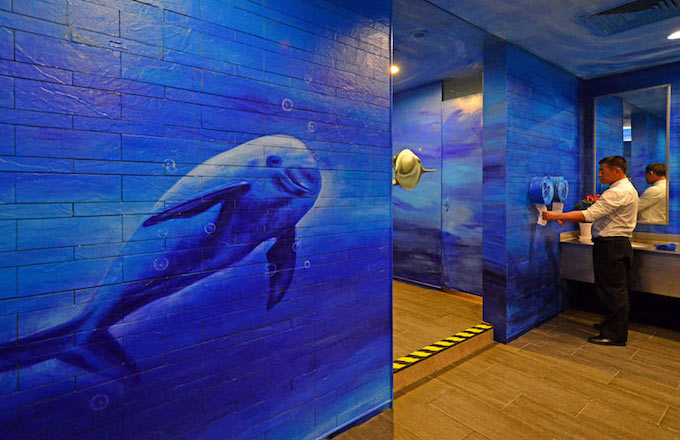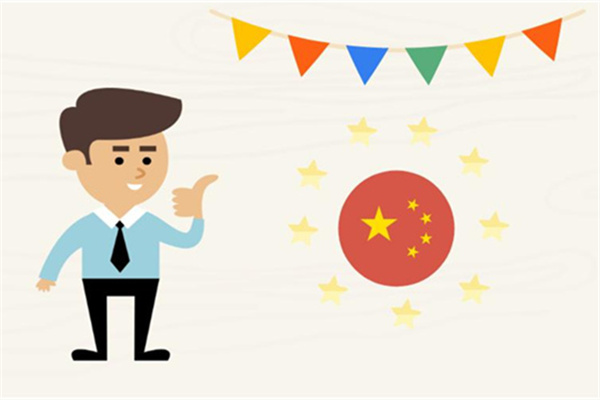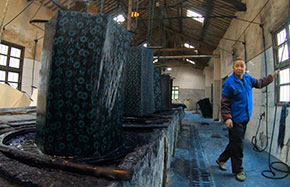Party place
Communist Party of China has navigated political and economic twists and turns over 90 years to reach its dominant position today
The early days of the CPC were a world away from its current status. Chinese reformers were forced to turn to the Soviet Union for support in founding a Communist party. The Lenin-led USSR was happy to oblige, at that time keen on the idea of spreading the Communist ideal worldwide.
"The sponsorship of the Comintern in Moscow helped establish the CPC but did not ultimately prove successful," says Kent Deng, doctor of economic history at the London School of Economics (LSE). "The Communist movement was initially defeated, leading to the Long March (a strategic retreat from Kuomintang troops). Although the Party moved to Jiangxi, it was forced to withdraw from most of China. It looked like the revolution was dead."
The Party struggled on, often in exile, through civil war and Japanese occupation. It was not until the end of World War II that Mao Zedong and the CPC saw their opportunity.
"After 1946, the Party became very pro-active," says Deng. "They saw a very much injured Kuomintang side, led by Chiang Kai-shek, and threw everything in to win the war."
The significance of this victory, and the subsequent formation of the People's Republic of China, cannot be underplayed, even in terms of the development of China's transformation into a global economic superpower in more recent times.
"You can't consider 1978 and Deng Xiaoping's reforms as the beginning," says Martin Jacques, author of When China Rules the World. "The pre-conditions for what happened after 1978 were set in 1949. What China depended on above anything else historically was the restoration of its national sovereignty, the booting out of the various colonial powers and the restoration of the unity of the country which had been seriously eroded after 1911.
"This was Mao Zedong's achievement. This is why Mao is considered a more important figure than Deng Xiaoping in China, and they are right in that sense. Mao, for all his weaknesses, was a colossal figure historically."
But even with the issue of national sovereignty resolved, the CPC was to face a series of stark choices by the mid-1970s, as the country emerged from the "cultural revolution" (1966-76), which had left China isolated from the rest of the world and struggling to provide for its population. It was the choices made in these years that redefined the Party, the country, and the world as a whole.
"Coming out of the 'cultural revolution', China faced a choice: Do we want the Gang of Four (the faction which controlled the nation during the 'cultural revolution') to control society and continue down the same path, or do we try something different?" says Deng of the LSE.
"The key issue for the leadership was how to feed the nation again. At the end of the "cultural revolution", China had become a net food importer. Something had to change, but it was really just common sense. People were given the chance to exit from Maoism."
Deng Xiaoping's reforms were simple. Open China to international trade, decollectivize agriculture and begin to denationalize the urban sector. His often cited phrase, "search for the next stepping stone to cross the river", was indicative of his idea that there was no longer the need for such rigid central planning in the Chinese economy.
"They were actually just following common sense and relaxing the rules a bit," says Deng. "This soul-searching initiated by Deng Xiaoping offered a choice between dogmatism and pragmatism, and they chose pragmatism."
Deng Xiaoping, who passed away in 1997, was never to witness the truly remarkable changes his "stepping stone" reforms have led to in the last 15 years. One of the greater leaps in this period was China's eventual admission to the World Trade Organization (WTO) in 2001.
"Deng Xiaoping started this whole process when he said: 'We want peace'," says Kent Deng. "Looking back now, this is an incredibly far-sighted view, as it means China would be a friend of the capitalist West. We were no longer a threat. Perhaps only Deng could do this, as he spent five years in France. For him, capitalism wouldn't have been so bad.
"The CPC is now controlled by technocrats, who are really very practical people. They are well educated, often bilingual. They have this extra, external dimension, a different outlook on the world and outlook for China. They are more flexible and more practical."



























